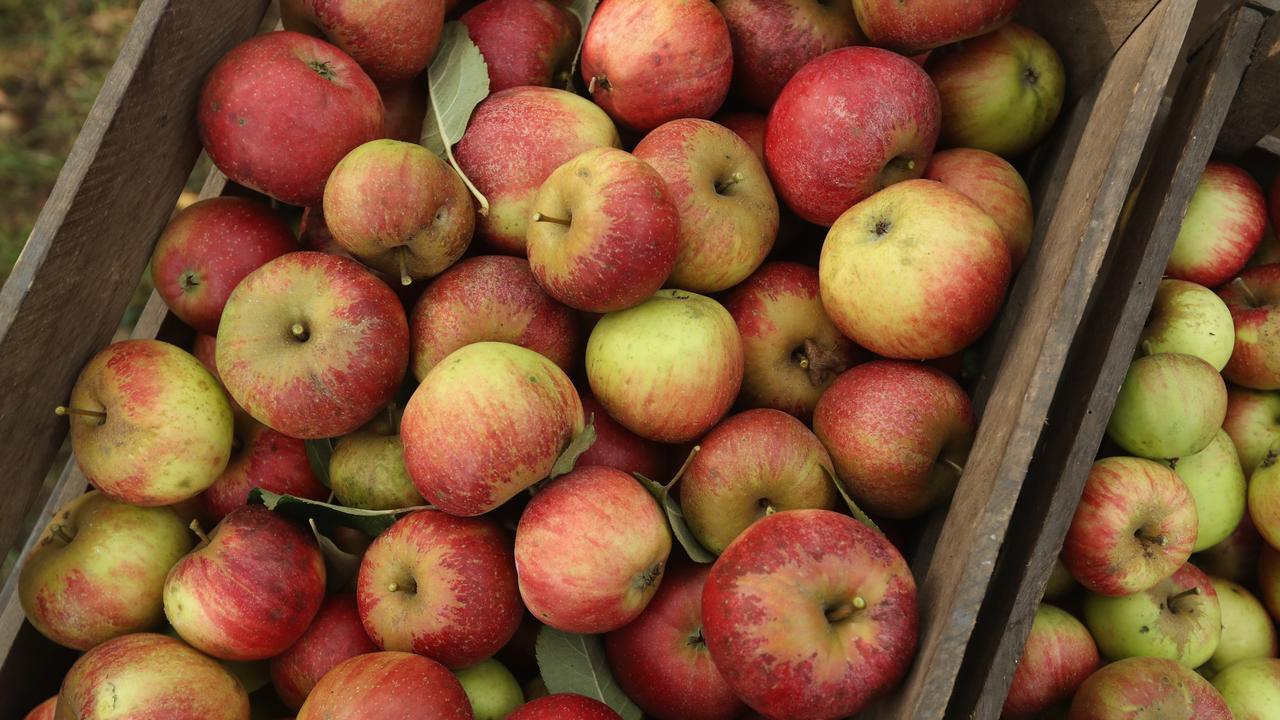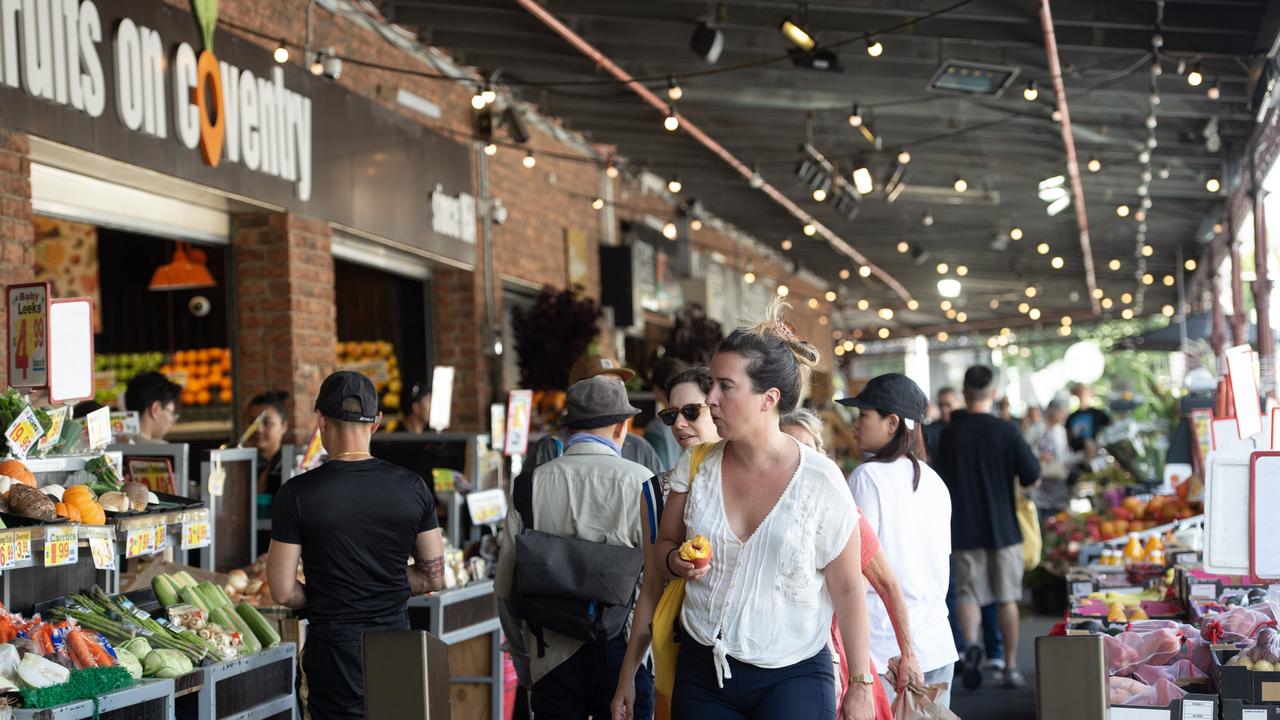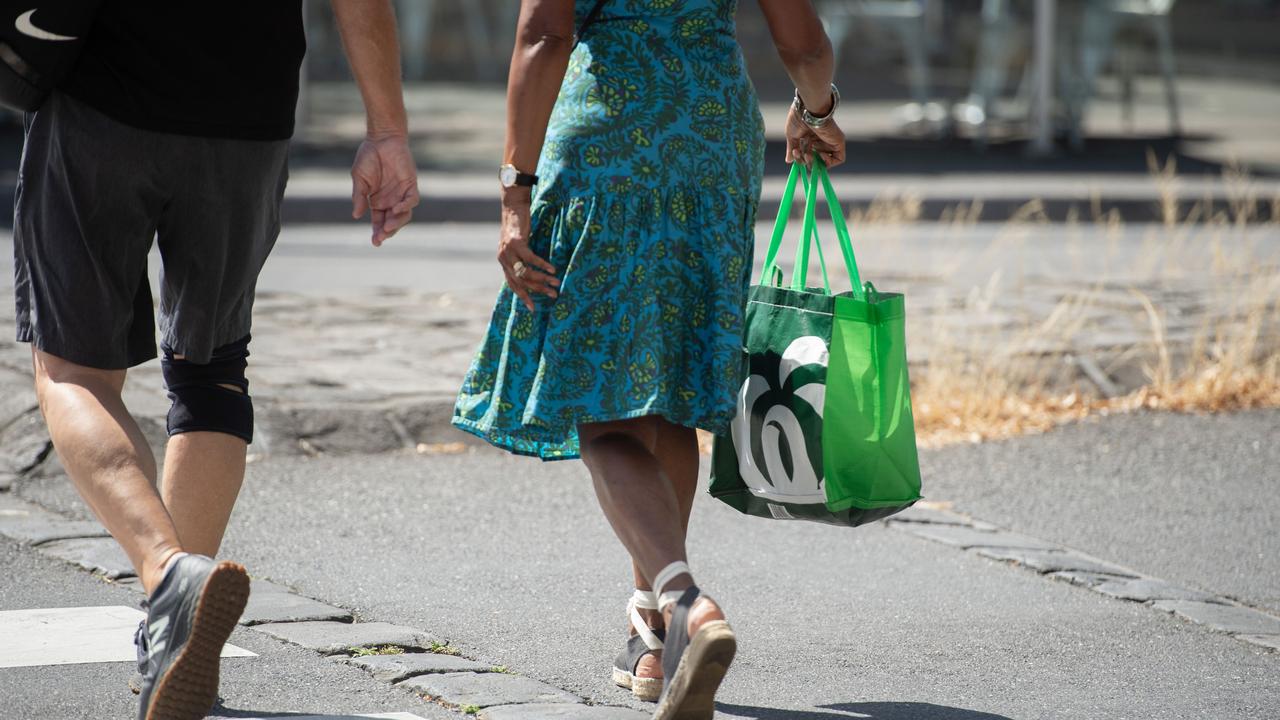Bob Katter, Ross Cadell clash on sidelines of supermarkets inquiry
Maverick MP Bob Katter has clashed with a Nationals senator, demanding he ‘shut up’ on the sidelines of a probe into Coles and Woolworths.
Bob Katter and a Nationals senator have clashed on the sidelines of an inquiry probing the major supermarkets.
A verbal altercation broke out between the maverick Kennedy MP and NSW senator Ross Cadell in Orange, while Mr Katter and independent MP Andrew Gee were announcing a parliamentary bill into the power of Coles and Woolworths.
As Senator Cadell repeatedly interjected, Mr Katter asked him to stop interrupting.
“Why don’t you spend a little bit of time attacking Woolworths and Coles instead of playing politics?” Mr Katter told him.
Senator Cadell, who is is on the senate committee, replied: “Not you Bob, I’ve got no problem with you, Bob, but I’ve got a problem with the stunt man here”, referring to Mr Gee, who quit the Nationals in 2022 over the Voice.
Mr Katter hit back, yelling: “Don’t keep interrupting me. You hear me? Don’t keep interrupting me”.
“Every time I’ve opened my mouth, you’ve started talking. Now shut up and let me have a go.”
In a statement, Mr Katter said he would be making a formal complaint against the Nationals senator.
“His behaviour was most improper,” Mr Katter said.
“I’m calling on the Nationals to withdraw this senator from their representation on this inquiry.”
The stoush broke out during the inquiry into supermarket pricing, which is looking at the price-setting practices and market power of Coles and Woolworths.
During the inquiry, a fruit grower warned he will soon be forced to quit the apple industry because soaring labour costs are outpacing the low produce prices offered by grocery chains.
Meanwhile, another food producer has warned that Australia won’t have any family farms left by 2040.
NSW fruit grower Ian Pearce told an inquiry into supermarket pricing on Tuesday the market price for a kilo of his gala apples has only increased by 23 cents since 2011.
But he said his labour costs had risen by 50 per cent in the same period.
“It’s just a terrible situation,” Mr Pearce said.
“If we haven’t had a price increase in 12 years, our costs are going through the roof, what’s going to happen? I can’t see a future.”

Local farmers and producers gave shocking evidence to a hearing at Orange in NSW on Tuesday, which heard how the increased corporatisation of Australia’s supermarket industry has “destroyed” the local farming sector and put the nation’s food security at risk.
Cherry and apple farmer Guy Gaeta told senators the decimation of independent food producers would lead to steeper prices for consumers.
The average weekly grocery bill in Australia increased from $148 in 2022 to $185 in February this year, according to a recent Finder survey.
“If they keep paying the market price that they are at the moment, like with apples, they’ll crucify apple farmers – there won’t be any family farms left in five to 10 years,” Mr Gaeta said.
“It is scary and if you don’t have family farms you’re going to lose your food security and if you think consumers are paying for a lot of food now you wait until we’re gone.”

There are approximately 85,681 farm businesses in Australia, about 99 per cent of which are family-owned and operated.
Australian farms produce around 93 per cent of the total food consumed in the country.
Earlier, farming groups told the inquiry that smaller producers were too afraid to speak out over unfair pricing practices due to fear of being shunned by the dominant supermarket chains.
“We’ve got an issue where … if you send lambs to the abattoir and they are downgraded, there isn’t a clear grading scale as to what is bad and what is acceptable – and it can be a significant discount,” NSW Farmers spokesman John Lowe said.
“It’s so easy to go on the ‘I don’t want to buy from you’ list because you’re trouble – and that can happen to any producer, and all of a sudden you can’t get a contract.
“It’s very insidious. It can be very subtle but the result is that you get taught fairly strongly and others see what has happened to you.”

Nearly 90 per cent of food and beverage manufacturing businesses operating in Australia are either non-employing or small, according to the latest ABS data.
Kathy Rankin, head of policy and advocacy at NSW Farmers, said most local producers did not have the legal or financial resources to launch a winnable dispute against the major supermarkets.
She called to strengthen the grocery code to ensure sure complaints process was independent and put the costs back onto the supermarkets if they were found to be acting unfairly.
Both Coles and Woolworths, who have combined market control of about 65 per cent of the industry, have denied allegations of price gouging and claim that an uptick in corporate profits have been driven by improved in-store productivity.
Coles CEO Lea Weckert, at business event in Sydney, defended the supermarket, saying they had a rigorous process to manage price rises and worked hard with suppliers to keep costs low.
She said suppliers were reporting 10 times the cost price increases in recent years compared to pre-pandemic levels.
“We do produce so much of our food here and we want everyone here in the supply chain to make a reasonable return,” she told an AFR Summit in Sydney.





